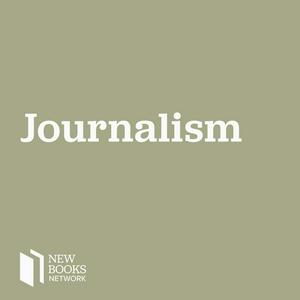Arianne Edmonds, "We Now Belong to Ourselves: J. L. Edmonds, the Black Press, and Black Citizenship in America" (Oxford UP, 2025)
At the turn of the twentieth century, the Black press provided a blueprint to help Black Americans transition from slavery and find opportunities to advance and define African American citizenship. Among the vanguard of the Black press was Jefferson Lewis Edmonds, founder and editor of The Liberator newspaper. His Los Angeles-based newspaper championed for women's rights, land and business ownership, education, and civic engagement, while condemning lynchings and other violent acts against African Americans. It encouraged readers to move westward and build new communities, and it printed stories about weddings and graduations as a testament to the lives and moments not chronicled in the White-owned press.
Edmonds took this fierce perspective in his career as a journalist, for he himself was born into slavery and dedicated his life to creating pathways of liberation for those who came after him. Across the pages of his newspaper, Edmonds painted a different perspective on Black life in America and championed for his community--from highlighting the important work of his contemporaries, including Booker T. Washington and W.E.B. Du Bois, to helping local readers find love in the personal ads section. The Liberator, along with a chorus of Black newspapers at the turn of the century, educated an entire generation on how to guard their rights and take claim of their new American citizenship.
Written by Jefferson Lewis Edmonds' great-great granddaughter, We Now Belong to Ourselves: J. L. Edmonds, the Black Press, and Black Citizenship in America (Oxford University Press, 2025) chronicles how Edmonds and other pioneering Black publishers documented the shifting tides in the advancement of Black liberation. Arianne Edmonds argues that the Black press was central in transforming Black Americans' communication patterns, constructing national resistance networks, and defining Black citizenship after Reconstruction--a vision, mission, and spirit that persists today through Black online social movements. Weaving together poetry, personal narrative, newspaper clips, and documents from the Edmonds family archive, We Now Belong to Ourselves illustrates how Edmonds used his platform to center Black joy, Black triumph, and radical Black acceptance.
Arianne Edmonds is a 5th generation Angeleno, archivist, civic leader, and founder of the J.L. Edmonds Project, an initiative dedicated to preserving the history and culture of the Black American West. She is currently a Senior Civic Media Fellow at the USC Annenberg School for Communication and Journalism funded by the MacArthur Foundation and a Commissioner for the Los Angeles Public Library.
Caleb Zakarin is editor of the New Books Network.
Learn more about your ad choices. Visit megaphone.fm/adchoices
Support our show by becoming a premium member! https://newbooksnetwork.supportingcast.fm/journalism


